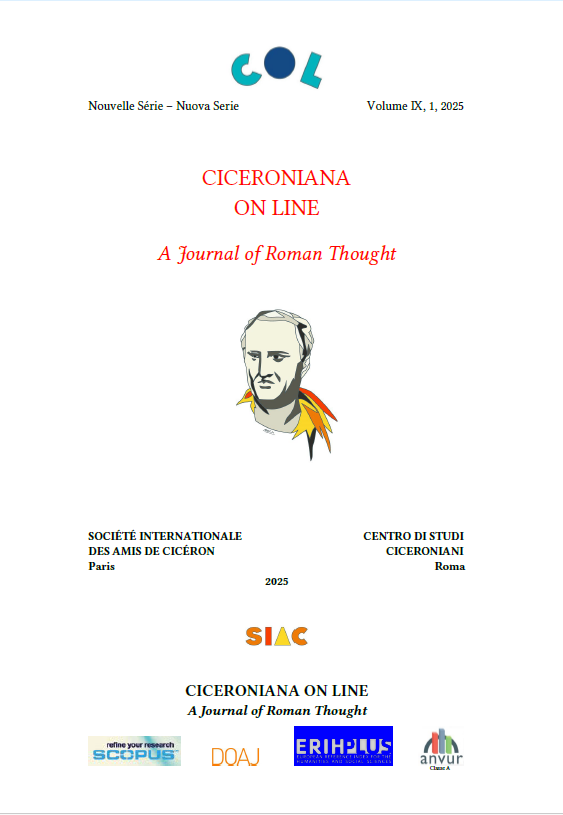Between Truth and Fiction: the Doctrine of insinuatio from Cicero's De inventione to the Latin Middle Ages
Abstract
This article reflects anew on the controversial issue of the relationship between morality and rhetoric in Roman oratory. It does so by focusing on the theory and practice of insinuatio in rhetorical treatises and commentaries from Cicero’s De inventione to the Middle Ages. The aim is to demonstrate that the “indirect opening”, the manipulatory exordium, triggers a complex network of ethical and rhetorical mechanisms affecting the emotions of the audience, which is drawn into the orator’s entrancing play on truth and fiction. By revisiting insinuatio, the article seeks to shed new light on the moralistic approach to Cicero’s art of “speaking well” in rhetorical treatises and exercises as well as in pseudepigraphic texts in the educational system.
Downloads
Downloads
Published
How to Cite
Issue
Section
License

This work is licensed under a Creative Commons Attribution-ShareAlike 4.0 International License.
Authors who publish with this journal agree to the following terms:
- Authors retain copyright and grant the journal right of first publication with the work simultaneously licensed under a Creative Commons Attribution License that allows others to share the work with an acknowledgement of the work's authorship and initial publication in this journal.
- Authors are able to enter into separate, additional contractual arrangements for the non-exclusive distribution of the journal's published version of the work (e.g., post it to an institutional repository or publish it in a book), with an acknowledgement of its initial publication in this journal.


 Ciceroniana On Line is recognised by ANVUR (the National Agency for the Evaluation of the University System and Research) as a CLASS A journal for the Sciences of Antiquity, Philology, Literature and History of Art (
Ciceroniana On Line is recognised by ANVUR (the National Agency for the Evaluation of the University System and Research) as a CLASS A journal for the Sciences of Antiquity, Philology, Literature and History of Art ( The journal is included in DOAJ. The DOAJ listing of the journals is available at
The journal is included in DOAJ. The DOAJ listing of the journals is available at  The journal is indexed in
The journal is indexed in  The journal has been included in ERIH PLUS. The ERIH PLUS listing of the journals is available at
The journal has been included in ERIH PLUS. The ERIH PLUS listing of the journals is available at 
